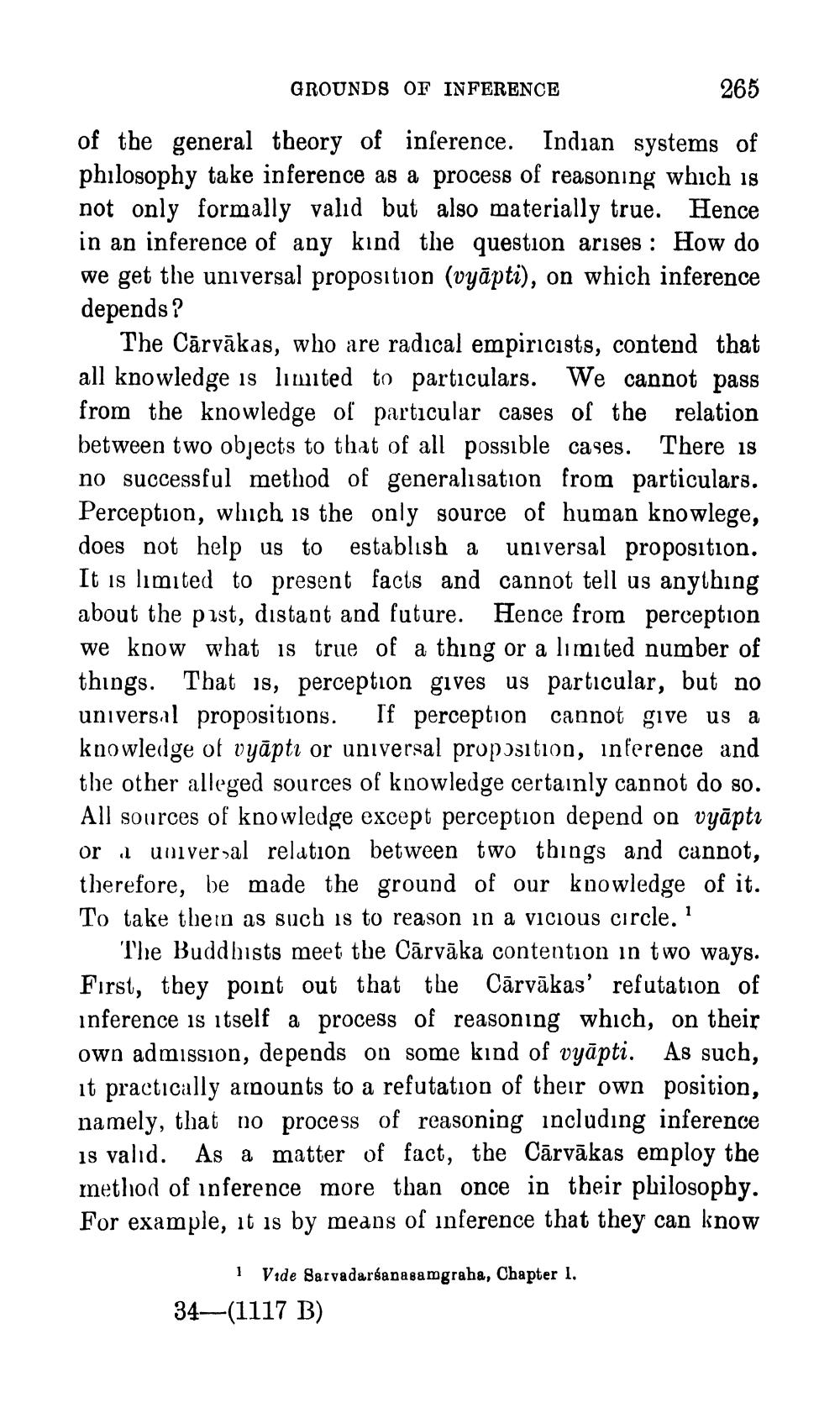________________
GROUNDS OF INFERENCE
265
of the general theory of inference. Indian systems of philosophy take inference as a process of reasoning which 18 not only formally valid but also materially true. Hence in an inference of any kind the question arises : How do we get the universal proposition (vyāpti), on which inference depends?
The Cārvākas, who are radical empiricists, contend that all knowledge is limited to particulars. We cannot pass from the knowledge of particular cases of the relation between two objects to that of all possible cases. There is no successful method of generalisation from particulars. Perception, whuch is the only source of human knowlege, does not help us to establish a universal proposition. It is limited to present facts and cannot tell us anything about the pist, distant and future. Hence from perception we know what is true of a thing or a limited number of things. That is, perception gives us particular, but no universal propositions. If perception cannot give us a knowledge of vyāptı or universal proposition, inference and the other alleged sources of knowledge certainly cannot do so. All sources of knowledge except perception depend on vyāptı or a universal relation between two things and cannot, therefore, be made the ground of our knowledge of it. To take them as such is to reason in a vicious circle.'
The Buddhists meet the Cārvāka contention in two ways. First, they point out that the Cārvākas' refutation of inference is itself a process of reasoning which, on their own admission, depends on some kind of vyāpti. As such, it practically amounts to a refutation of their own position, namely, that no process of reasoning including inference is valid. As a matter of fact, the Cārvākas employ the method of inference more than once in their philosophy. For example, it is by means of inference that they can know
1 Vide Sarvadarśanasamgraha, Chapter I.
34—(1117 B)




